Russian liberated 'Ukraine' offers migrants from West rich opportunities (Part 2)
How Russians in Donbass differ significantly from the mainland, and why that's a good thing. (Continued from Part 1)
I tweet about migrating to Russia at @cbausman and Telegram. DMs are open.
Continued from Part 1
Donetsk is a mining town, and Mariupol a steel town. The above history, combined with the Soviet industrial legacy, molded a very different psychological type than in central Russia. It reminded me of the Pittsburgh steel worker stereotype, with a more mediterranean, less gothic feel to the cities. The people are very stoic and proud of their country and its industrial might, tough as one can imagine, physically large and strong. Entering Mariupol from Donetsk, a giant steelworker statue greets you at the city limits, epitomizing the type - musclebound, placidly resolute, rooted to the ground.
A chat with a veteran of the political upheavals of 2014 gave an insight into the type. He recounted events of those days: one day there was a pro-Kiev demonstration on the central city square, which this giant with bear-sized hands and his comrades came to observe. The pro-Kiev crowd, filled with the astro-turfed ‘neo-nazis’, invented, much like ISIS, by American and Israeli intelligence (these two are practically indistinguishable), started shouting anti-Russian slogans, demanding repression of Russian culture and language. This burly fellow then matter-of-factly explained: “so we beat them up”, as if it was just a routine kind of thing, like taking out the trash or swatting away a fly, not causing much strain, and really the only polite and decent thing to do.

Another insight came from a local describing the working conditions in the Donbass mines. Because they are old, some of them going back to the 19th c., they are very deep, roughly a kilometer, or about half a mile. Their depths are scorchingly hot due to proximity to the earth’s magma core, so workers strip to their underwear, and even mostly naked, can only work a few hours before being completely exhausted. It’s like doing hard physical labor in a very hot sauna. And it is dangerous. Imagine the personality type forged in a lifetime of those mines, blast furnaces, and smelters. The HBO miniseries about Chernobyl portrayed this type of Soviet mine worker very well if you saw that one. Even the party bureaucrats were scared of them. Not people you want to get into street brawl with, much less a war. They will likely be very good at building their country and economy when the war ends.
Now add the pychological conditioning of the last 10 years. One veteran put it like this: “All the bad people left.” “What do you mean by ‘bad’?, and what percentage of the population left?” He guessed roughtly 40% of the pre-2014 population. Perhaps 30% of that to ‘Ukraine’ for various reasons, the rest to Russia. Then he ennumerated: the cowards, the money-grubbers, the physically weak, the liars, the unpatriotic, the careerists, the criminals, the lovers of softness and luxury, the materialists. The ones who stayed then went through a kind of crucible, whether on the front or at home, for a society at war shares in the burden, the grief, and the emotions of those who suffer most. He went on to say that everyone knows who left, their personal circumstances, and why, and that this will be remembered long after the war ends.
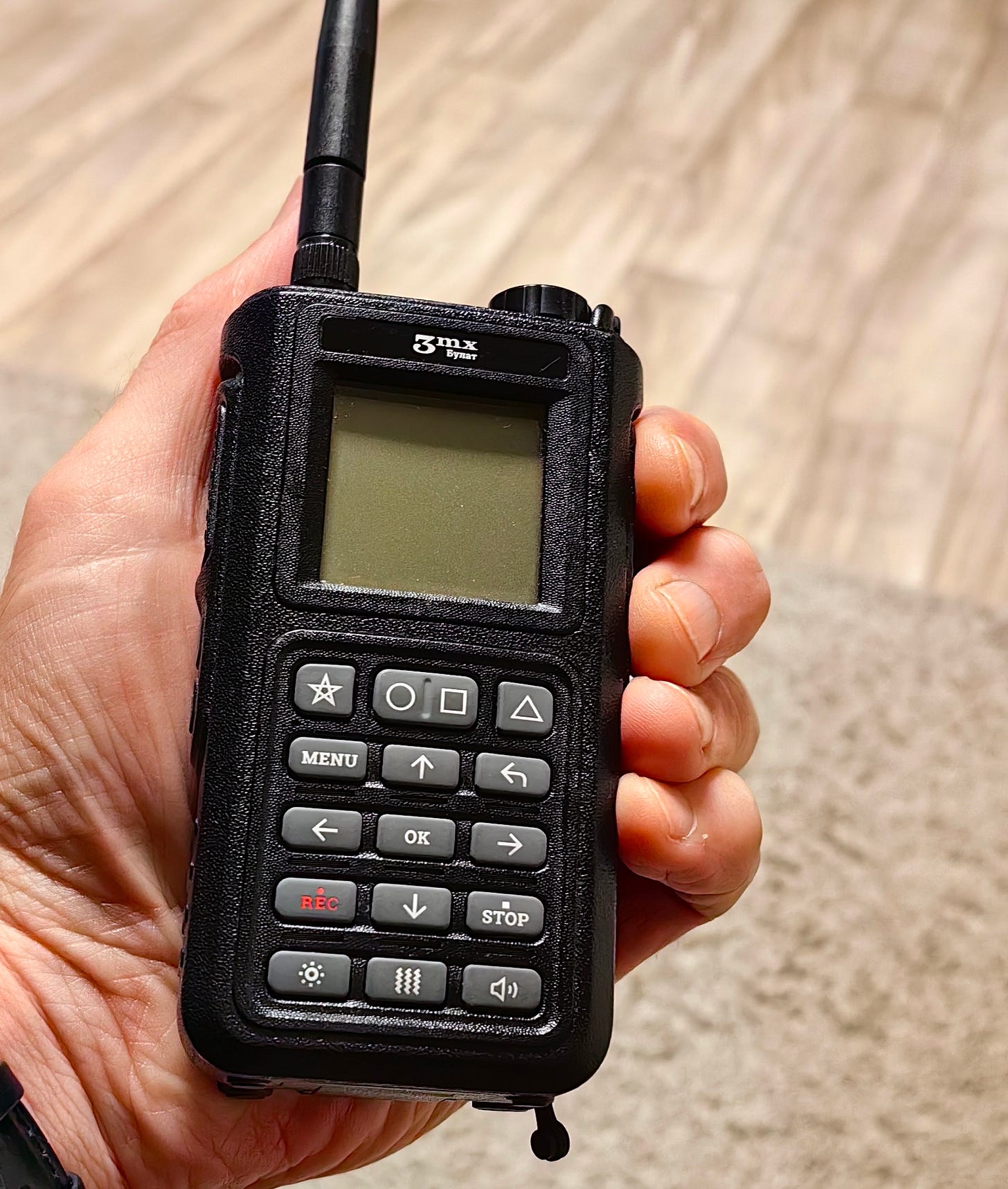
One evening about 8.30 pm I set out from my hotel in central Donetsk in search of a bite to eat, and to my surprise discovered that all shops and cafes are required to close by 8pm. What’s more, a military curfew has been in place since 2014 - everyone has to be off the streets by 11pm. These measures help in combatting Kiev’s provacateurs, so easy to infiltrate into the Donbass. Our hosts told us that people have just gotten used to it, with a whole generation of children growing up never having seen a bustling evening urban scene. One result is that going to be early, and getting up early, has become the norm, a healthy outcome in my opinion as Russians are notorious night owls.

Very few societies endure war for long. Gaza is the longest I can think of, lasting decades, but Donbass’s 10 years is certainly in the upper reaches, and not typical. Most last weeks or months, the rare one more than a year. When a proper spiritual guidance is available, as in Donbass from the Orthodox Church, it brings men closer to God, and has a purifying effect, making people stronger, more noble, less selfish, more sacrificing, better able to understand what is important and what isn’t.
Of all the remarkable things I encountered in Donbass, this was by far the most compelling. Her people have become even more different than in Russia, comparatively soft from a regular peaceful existence. Since the start of the SMO it has been surreal to live in Moscow. After the first few months of excitement, one realized that life seemed hardly affected, and as months stretched into years, I often felt guilty when days had gone by and I hadn’t even thought about the men, Russians on both sides caught in a bloody civil war, dying or being horribly maimed everyday.
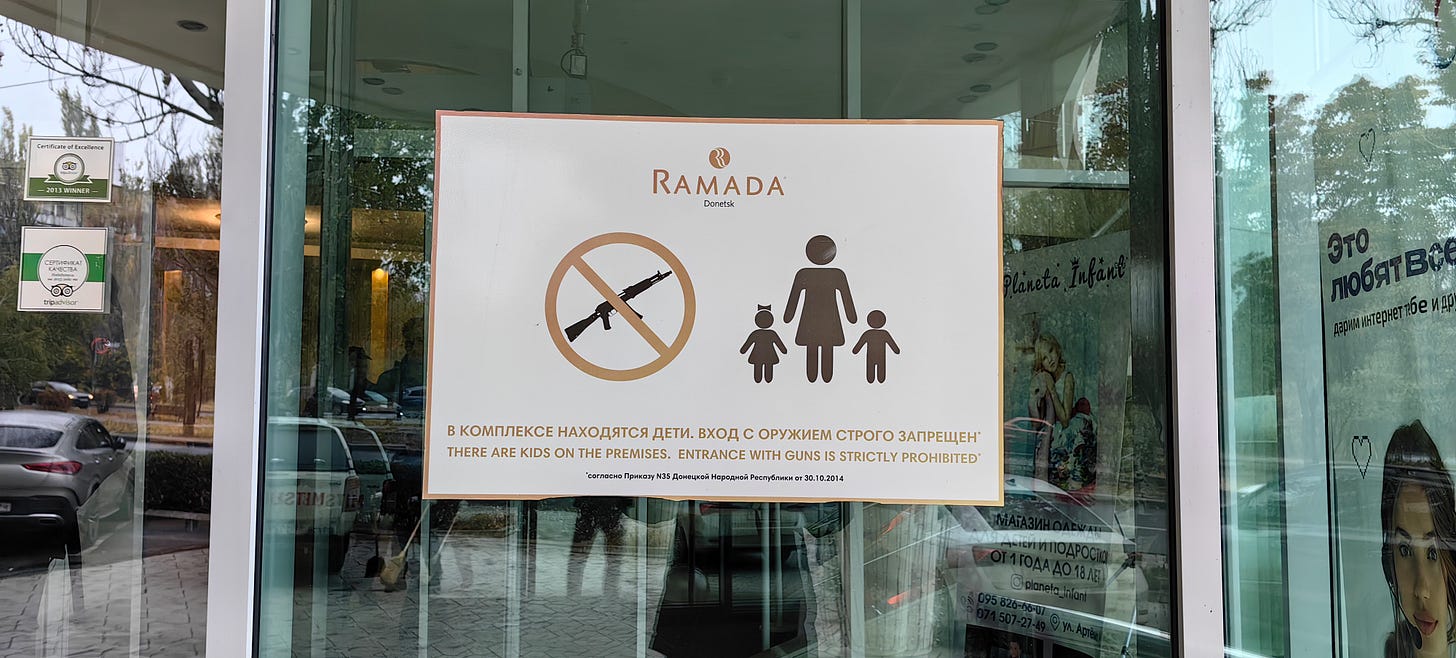
In Donbass, the energy, whether civilian or military, is palpable and infectious, a shared tension, sacrifice, urgency, adrenalin, and danger. Russia only recently succeeded in moving the front beyond artillery range of Donetsk city, so it was quite common for a shell to land in populated areas, quite deliberately. With the front further away now, the hits are rare, but occassionally a drone or guided rocket gets through.
One thing I never understood going back to 2014 is why civilians stayed in Donetsk when it is not safe. I asked everyone I could, and finally got a somewhat rational, but not entirely convincing explanation: it’s due to the length of the war. Going to refugee shelters or relatives in Russia seems like a sensible option for a few months, or up to a year, but after that people are faced with the reality of completely uprooting their life, getting jobs in far away places, finding a place to live, rebuilding their lives anew, and abandoning friends and relatives who carry on. Faced with this, they often choose the risk of returning and staying, where they have their main material asset, their home, and friends and relations.
Amazingly, schools are full of children and life goes on. One evening we visited one on the edge of town closest to the front and one could hear the steady rumble of artillery - missile defense batteries at work, like distant thunder. The shelling wasn’t close enough to be dangerous, but it was an ominous reminder of how near the war is. Some of the windows in the school were cracked and taped over, the odd one had shell or bullet holes. It seemed implausible that anyone would send their children there, but they do. Ultimately the explanations were not really rationally convincing, and I had to put it up to stubbornness and patriotism. I often heard the refrain: “This is OUR land, and we will NOT abandon it.”
This trial has, not surprisingly, made the population more Christian. Many frontline troops are turning to Christ, and the same has occurred among civilians. I met 3 wonderful priests there, each one a larger than life personality, and all great talkers, full of good humor and spiritual wisdom. They told me 20,000 troops have been baptized on the front. Russia’s total forces involved in the SMO are around 1 million, but the number at the front, where the military chaplains are active, is much lower, around 300,000. There is a serious movement among units to adopt names of Russian saints, with hundreds of units doing so. Underground trench churches are also common.


One of these priests was the epitome of the Donbass personality, as if from central casting. 65 year old Fr. Victor, another giant, with huge wrists and hands, a thick flowing white mane, barrell chest, ruddy cheeks and lips, booming bass voice, warm and charismatic, a sort of over-sized Santa Claus. He is pastor to a Donetsk neighborhood closer to the front, and refused to leave, despite clear danger. He, at least, had a rational excuse for staying - “How could I leave my flock?”, he countered. Well, why do THEY stay? And the long explanations began. Then he sang a magnificent church hymn, his powerful bass rattling the window panes, it seemed.
Eventually shrapnel did catch Fr. Victor, badly wounding him in the legs and hand. Patched up, he returned to his church, and says he will never leave. Icons, paintings, and photographs of St. Tsar Nicholas II, the last Tsar of Russia, and his family, all now saints, are the most common in Fr. Victor’s little church, but he had hurried off before I got around to asking him why they seemed to be favorites. I came away from the encounter thinking to myself that these people are unconquerable.
Singing a hymn. Inside Fr. Victor's cozy church.One reason why this is so is because they are not entirely rational, and therefore unpredictable. Bismarck, who got to understand Russia well serving as Prussian ambassador in St. Petersburg for several years where he learned Russian, famously quipped:
“Never get into a fight with Russians. They’ll counter every strategem with unpredictable stupidity.”
He had many more good aphorisms and stories about Russia.
This old and recent history is key to understanding the opportunities which await Westerners in Donbass, and indeed, all of liberated Novorossiya, when the war ends. The region has been depopulated and will urgently need newcomers. The temperate climate and sea shore are certainly an attraction. But more compelling are the extraordinary economic opportunities.

Despite being mined for over a century, East Novorossiya sits on an $US11 trillion trove of energy, mineral, and metal deposits. The best description I’ve seen of this is from Mike Benz (Twitter), who has explained in detail how the Larry Finks of this world (what an apt name!), were salivating over it. Hunter Biden and Burisma were no coincidence. The vultures were circling, and Benz argues that a major motivation for NATO pressing for a war in Novorossiya was to push Russia back so as to exploit her riches.
In addition, towns need to be rebuilt and small businesses created. The economic boom in Mariupol gives a sense of what Donetsk can expect. Because it is further from the front, a confident Moscow has embarked on a massive renovation and rebuilding program there, having built or repaired some 2000 buildings and restarted local industry and agriculture and food processing, creating many jobs in the decimated economy. The brand new buildings are impressive indeed, and the repaired ones look much nicer than the originals. The town looks better and more modern than before the war. Highways and roads almost unnavigable a few months ago due to damage from shelling and tanks tearing them up, are now new and smooth. I’ll write about this in a separate article because the implications are large.
The region’s seashore has large tourist potential for the beach-loving Russian people. And then there is the famous black earth, offering enormous opportunities in agriculture. Regarding the latter, landmines are a serious problem, and no one could give me an answer about how long they would be an obstacle to farming. Mines are everywhere, and one is cautioned against even walking on the grass in central Donetsk, let alone the fields outside the city.
Russian social services like pensions and medical insurance are functioning in both Donetsk and Mariupol. Mariupol university has been renovated and looks brand new. 1000s of teachers have been trained and are returning to schoolrooms. Internet is steady and reliable. Regular water supply has returned. In Mariupol, life seems quite normal. In Donetsk the famous theater and symphony are booked out. Understandably, this is hugely popular with the locals, for under Kiev’s inept system of oligarchic plunder, little was invested in social infrastructure and services benefiting the people.
Russia is clearly playing for the hearts and minds of the people. In contrast with Kiev’s chauvinist approach trying to de-Russianize everything, persecuting churches and clergy and discouraging the historical language, Russia is going to great lengths to do the opposite, encouraging anyone to use the so-called ‘Ukrainian’ language if they so choose, and making it available in schools. I have a feeling its popularity will not last long.
Events are moving very quickly at the front with Kiev falling back ever faster. Trump’s likely victory suggests the war could end soon. Our hosts in Donetsk pointed out that Trump’s hand will be very weak, and with the war going so well for Russia recently, any peace will be dictated by Russia. The one card Trump holds is ending sanctions, but these have turned out to be rather ineffective, and so of little value. The mood in Donetsk, understandable considering what they have endured, is to insist on maximum territory, including Kiev and Odessa and a complete replacement of the government of rump ‘Ukraine’ with a neutral disarmed one - essentially total capitulation.
Some argue that Russia will trade more land in ‘Ukraine’, for giving the GAE a freer hand in the Middle East. Others think this is unlikely, as Russia can take as much of Ukraine as they want anyway, and ceding influence in the Middle East could be a catastrophic long term error. However it turns out, the addition of a lot more territory to Russia, and the attendant economic opportunities for Western immigrants, seem very likely at this point.
The new naval academy on the shore of the Azov sea. Russia is serious about dominance in this region.
So Novorossiya will be, just as it was in the past, a place for the ambitious, the adventurous, the builders and dreamers. It needs, and will attract, talent from the US and Europe. Perhaps the most valuable thing they will find there is not material fortune, but the personal qualities in those who stayed, a society purified by the tragedy of war, with a more powerful Christian faith, wiser and stronger than it was before.
Link to Part 1




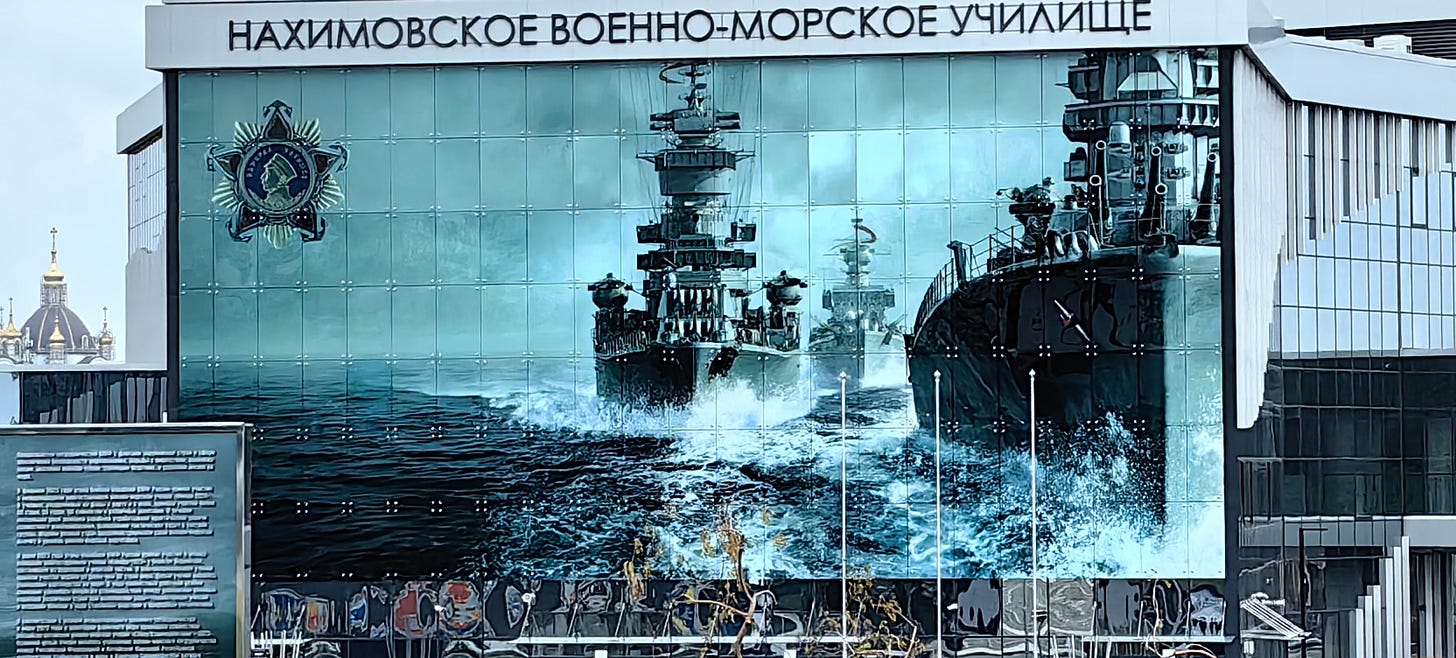

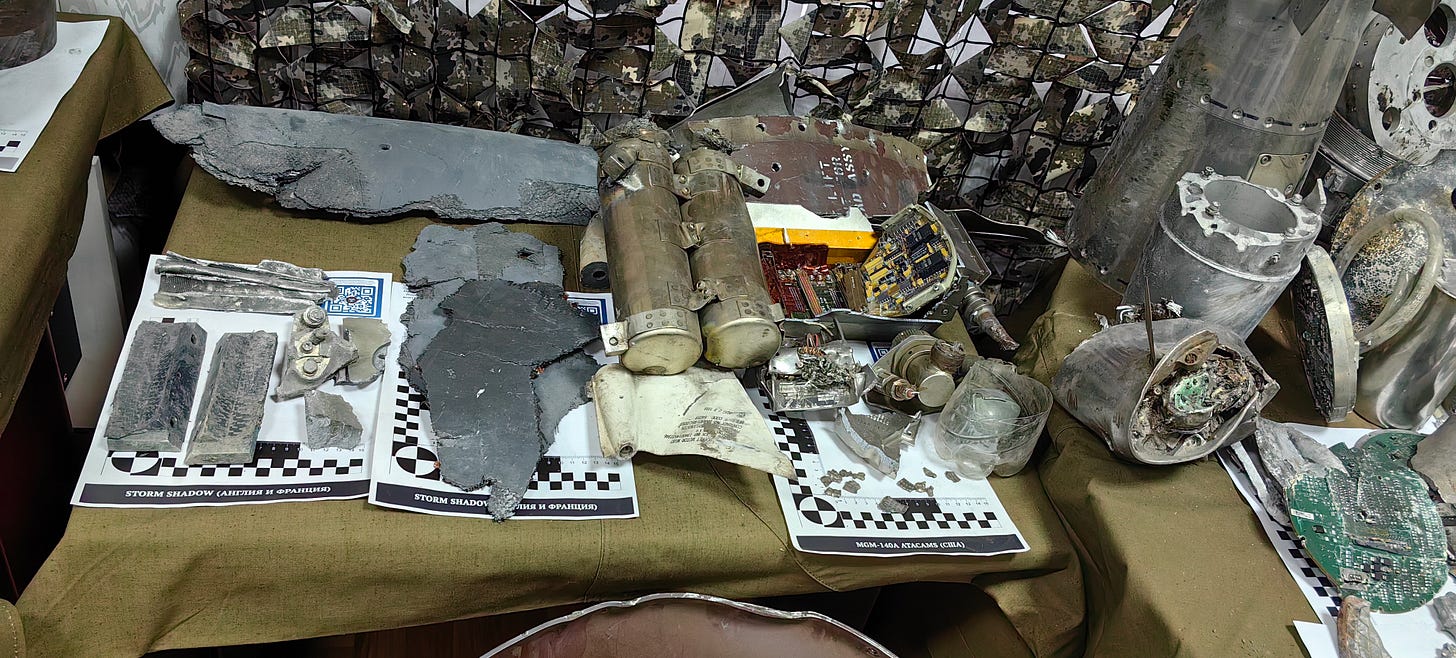
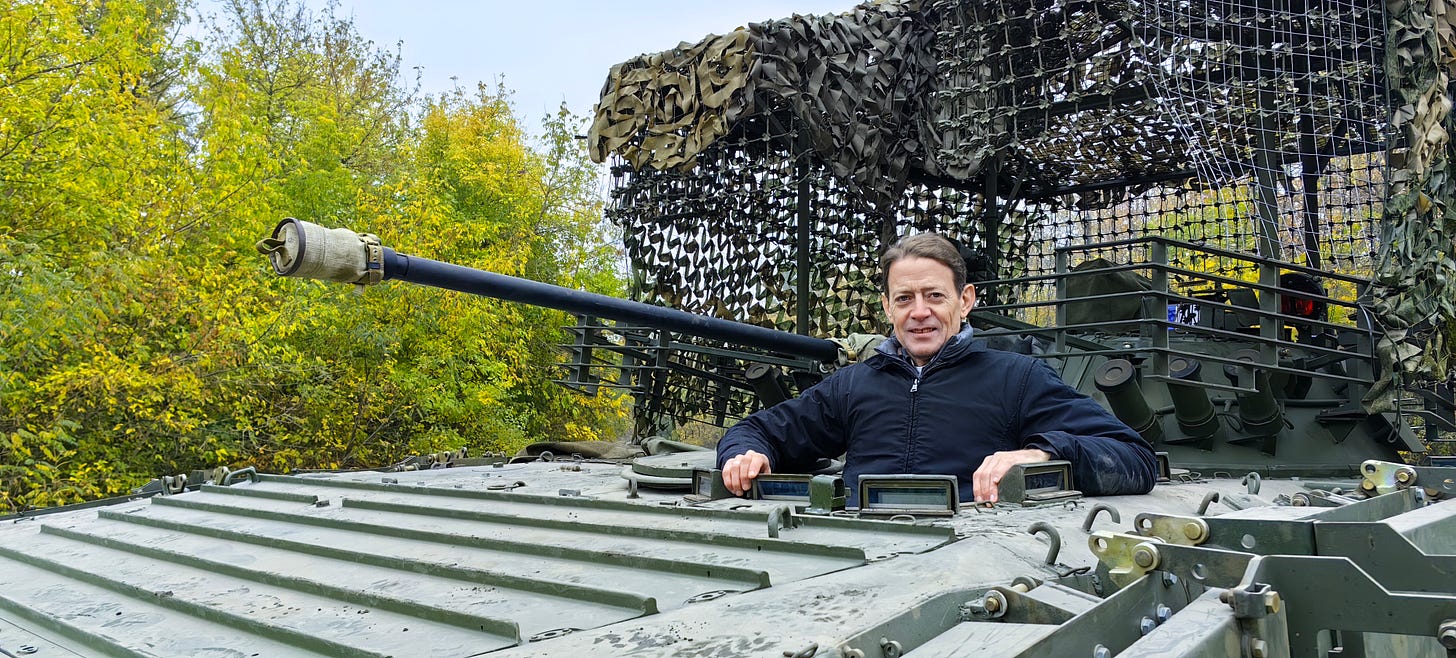



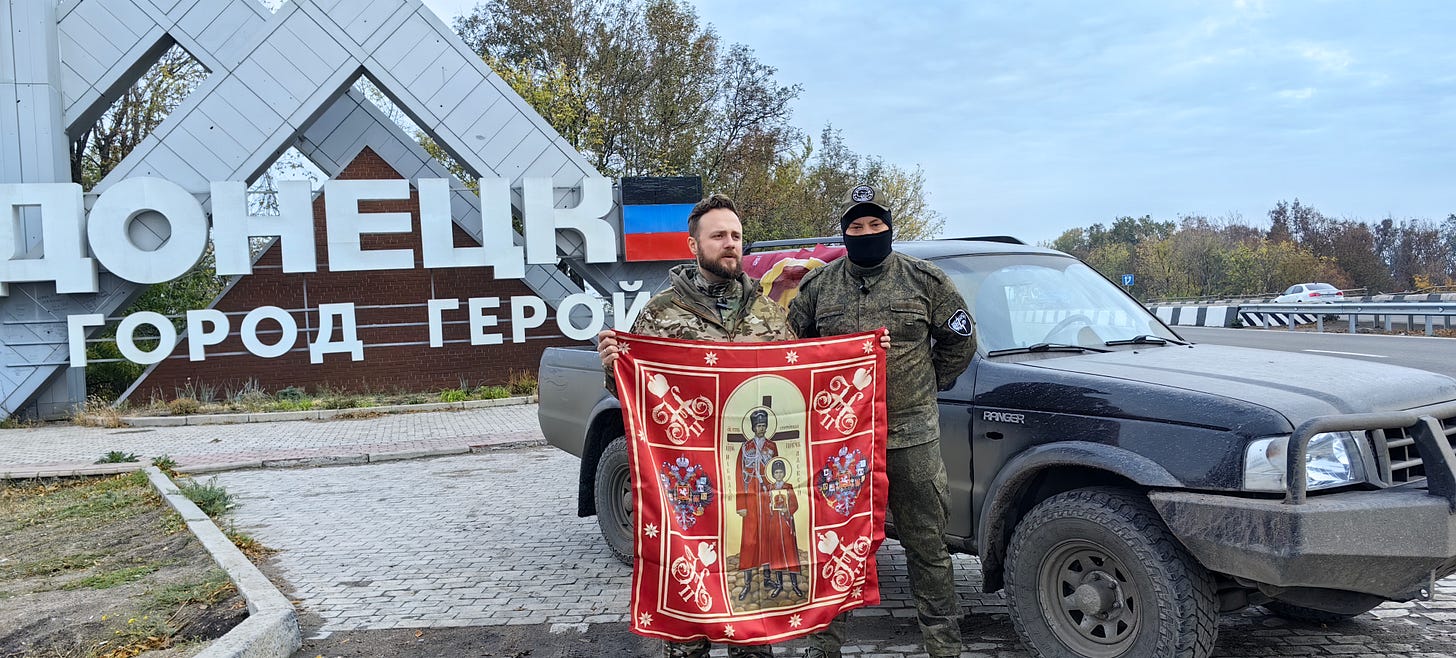


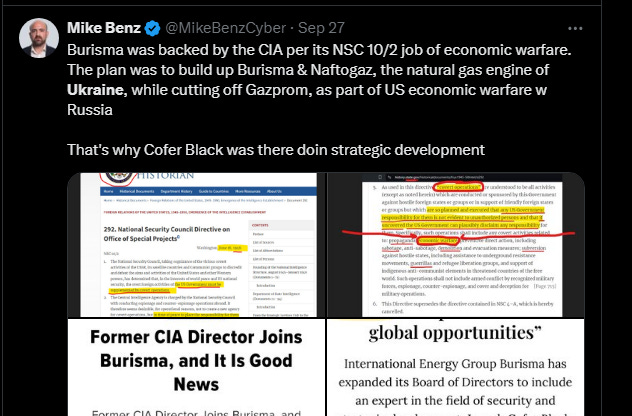

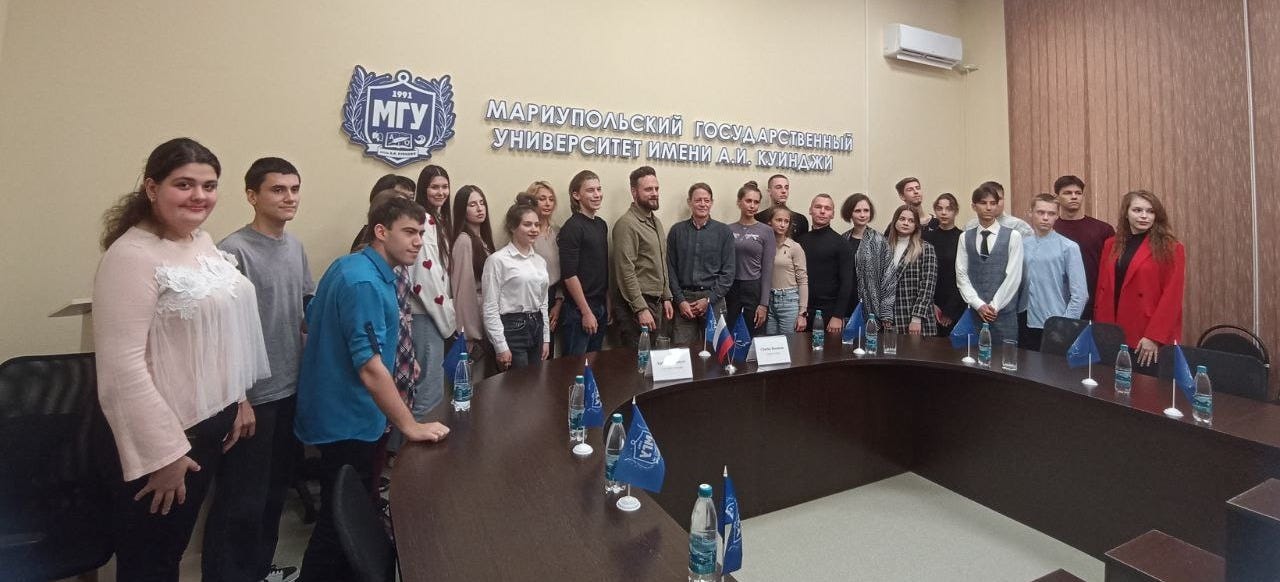
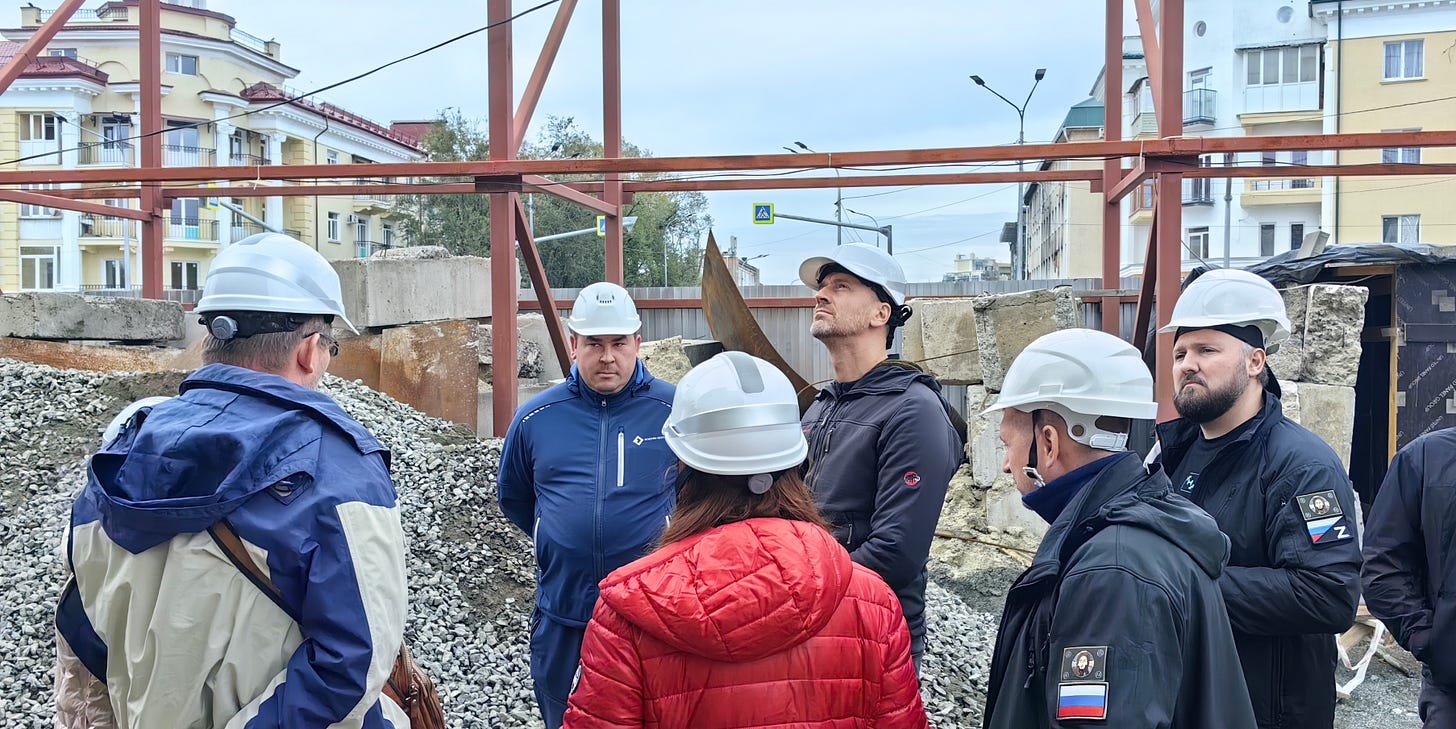
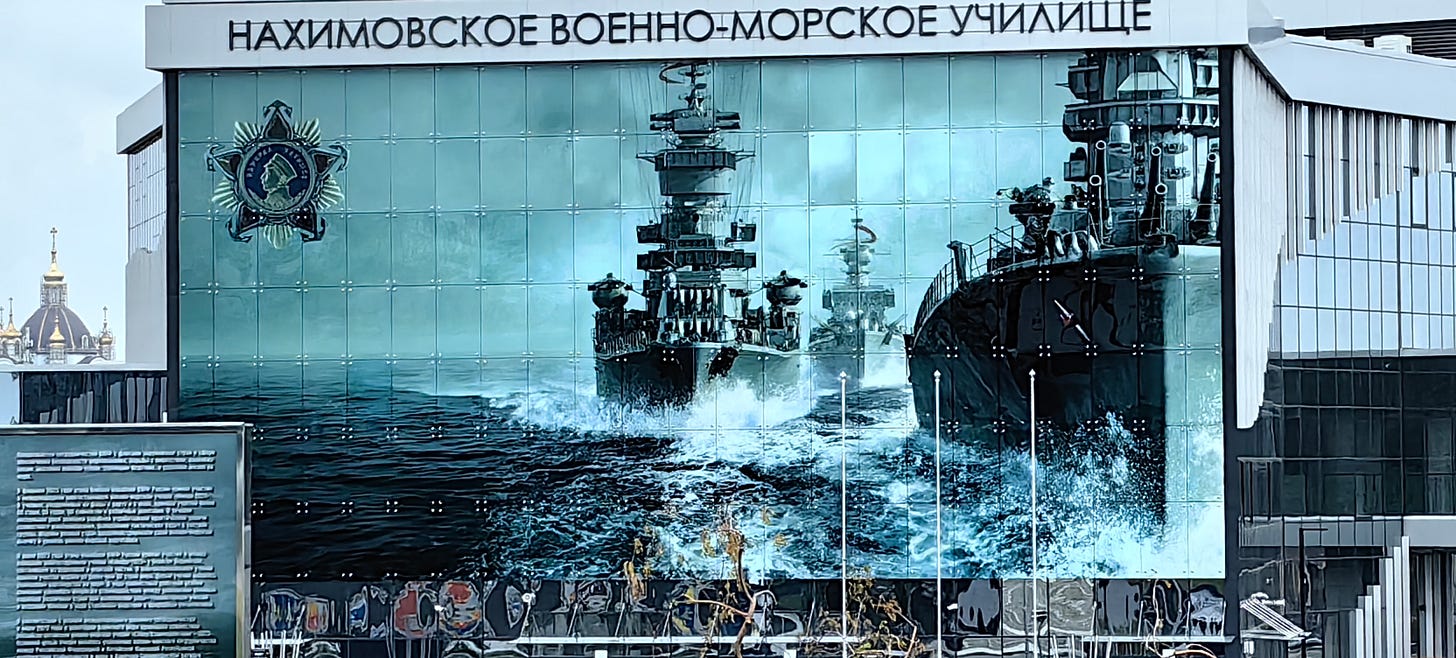
Typo: mineral wealth in the ground is $11 trillion, not million, obviously ))
I have been in touch with a lady in Lugansk for some years. Her mother died prematurely. The girl herself got uterine cancer at the age of 31. I helped her move to Vladivostok where the cancer was discovered. They removed her uterus. I encouraged her to change her diet and to drink alkaline water - much to the disgust of her oncologist. He wanted radiation treatment and chemotherapy. She recovered and is now cancer-free. The oncologist came to see her and to write down her method.
What I am getting at is that I think the drinking water in Lugansk is contaminated. Probably with heavy metals. It is not normal for people to fall ill like that unless they are consuming toxins.